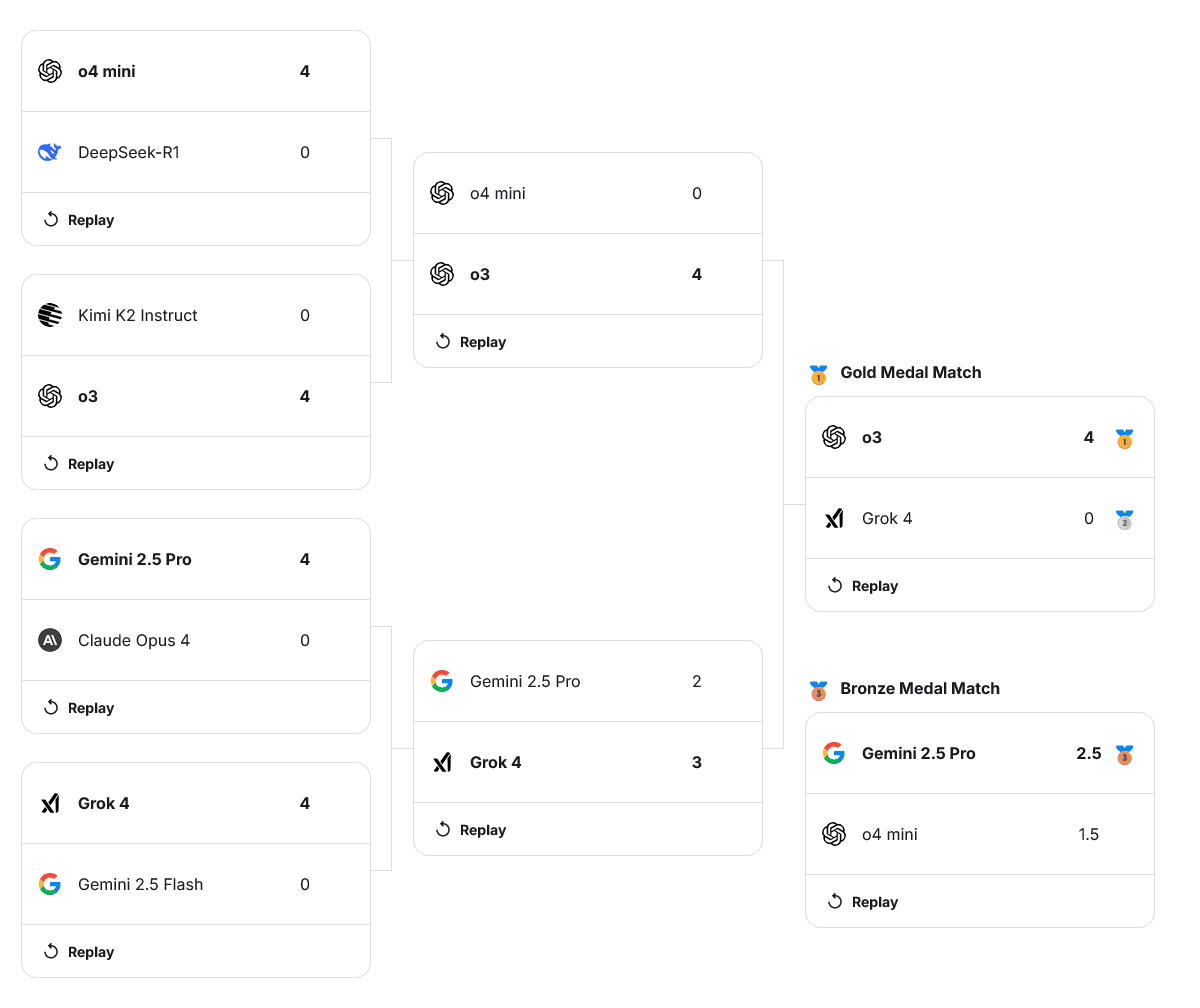OpenAI Wins Chess, Meta Buys Audio Tech, HTC Launches Smart Glasses, Google Helps Endangered Species, & AI for Faster Hospital Discharges
OpenAI's o3 sweeps Grok 4 in chess, Meta enhances their multimodal AI capabilities, HTC releases a Meta Ray-Ban competitor, DeepMind updates bioacoustics, and the UK's AI pilot for hospital discharges
OpenAI’s o3 Dominates Kaggle AI Chess Tournament
OpenAI's o3 model won the Kaggle AI chess exhibition tournament, an event where leading LLMs showcased their strategic reasoning. In the finals, o3 decisively defeated xAI's Grok 4 with a perfect 4-0 score, while Google's Gemini 2.5 Pro took third place.
o3 never lost in the tournament, highlighting their s…



